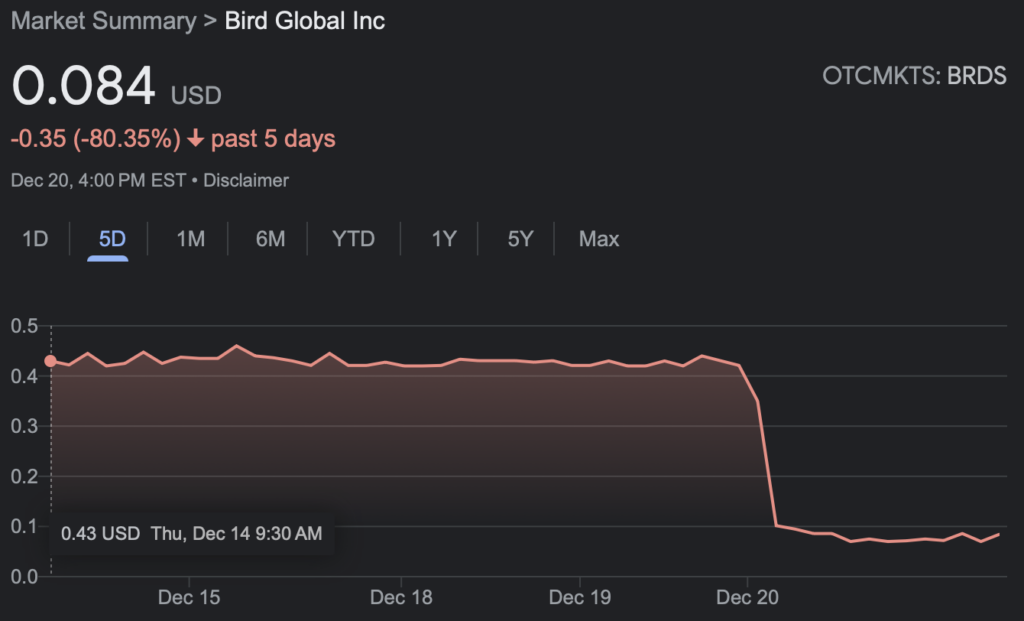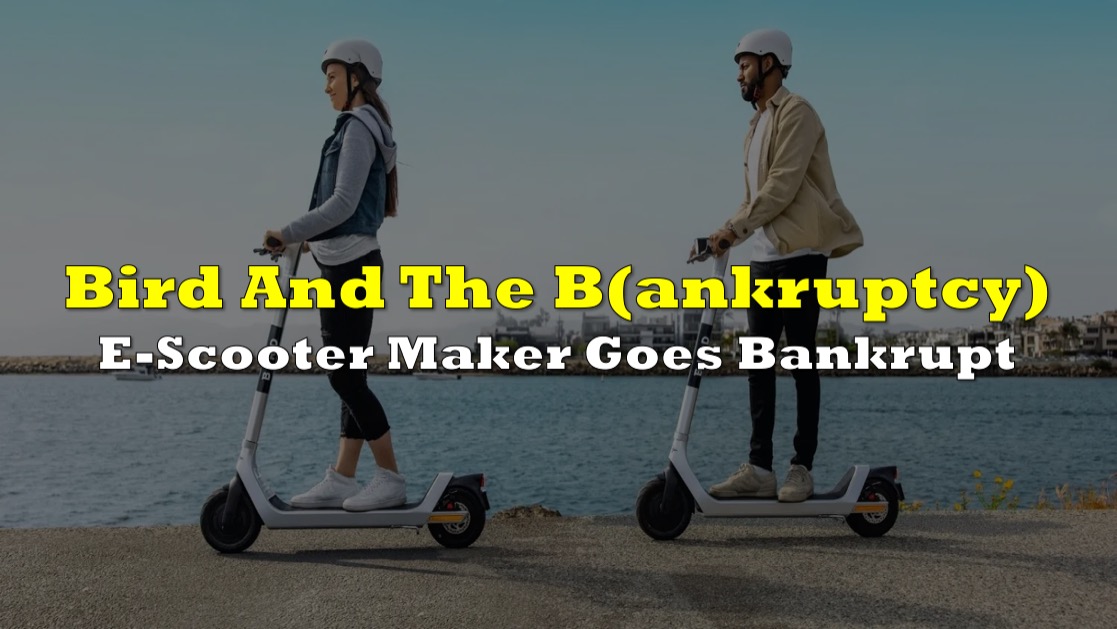Global e-scooter company Bird Global (NYSE: BRDS) has officially filed for Chapter 11 bankruptcy for its US operations, marking a pivotal moment for the once high-flying micromobility pioneer. The company, founded in 2017 by former Lyft and Uber executive Travis VanderZanden, has emphasized its commitment to restructuring for long-term growth while maintaining services in Canada and Europe.
In a press release issued earlier yesterday, Bird confirmed its entry into a financial restructuring process, aimed at bolstering its balance sheet and positioning the company for sustainable growth. The company, which operates in approximately 350 cities worldwide, is a key player in the dockless micromobility sector. Despite its global presence, the bulk of its operations are in the US.
Following the news, Bird’s shares plummeted more than 80%.

Bird’s fortunes took a hit after its public debut via a SPAC merger in 2021. The company’s valuation plummeted from over $2 billion during its New York Stock Exchange debut to a mere $70 million a year later, leading to its delisting from the NYSE in September. To complicate matters further, Bird acquired Spin from Tier Mobility and subsequently announced a round of layoffs.
According to Bloomberg, Bird’s Chapter 11 bankruptcy filing disclosed assets and liabilities ranging between $100 million and $500 million. The move allows Bird to undergo financial restructuring without disrupting day-to-day operations, with plans to sell assets within the next 90 to 120 days.
CEO Michael Washinushi, who remains at the helm during this challenging period, expressed optimism about the company’s future. Washinushi stated, “We are making progress toward profitability and aim to accelerate that progress by right-sizing our capital structure through this restructuring.”
Importantly, Bird’s Canadian and European operations are excluded from the bankruptcy filing and will continue operating as usual. However, the European market poses challenges due to regulatory pressures, such as Paris banning e-scooter services and other cities tightening regulations.
In contrast to Bird’s struggles, rival companies in the micromobility sector are experiencing mixed fortunes. Micromobility announced its delisting from the Nasdaq, and Europe’s Tier laid off 22% of its staff. Lime, on the other hand, reported “record ridership” with 40% growth in the first half of the year and $250 million in gross bookings. Lime also highlighted its commitment to expansion and no layoffs since the peak of the pandemic.
The current scenario starkly contrasts Bird’s earlier pitch deck, where it outlined investment highlights and emphasized meeting criteria such as disruptive technology, experienced management, market leadership, a compelling business model, returns-oriented operations, and catalysts for growth. Bird now faces a challenging path as it navigates through financial restructuring and strives to regain its footing in the evolving micromobility landscape.
— PitchDeckGuy (@BetterPitchGuy) December 20, 2023
Bird Global last traded at $0.084 on the NYSE.
Information for this briefing was found via Electrek and the sources mentioned. The author has no securities or affiliations related to this organization. Not a recommendation to buy or sell. Always do additional research and consult a professional before purchasing a security. The author holds no licenses.









